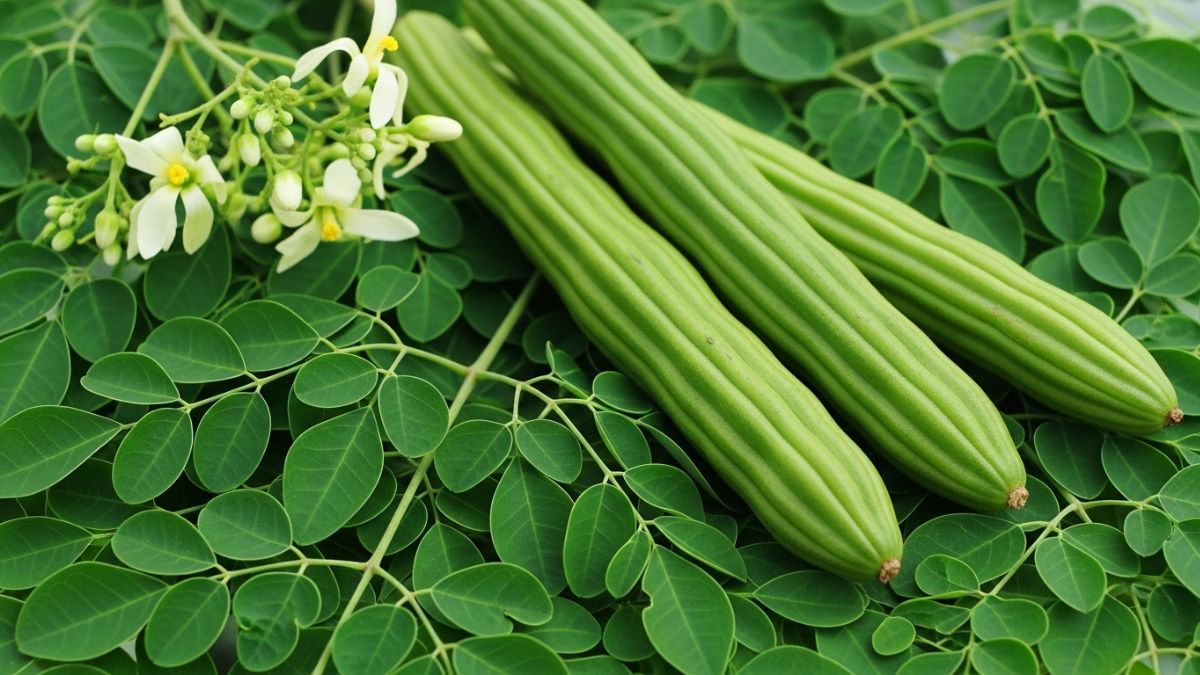Fact Check: Is it safe to consume moringa daily?

CLAIM:
Moringa is safe to consume every day.
FACT:
Moringa offers multiple health benefits; however, nutritionist advises against its daily consumption without consulting a qualified expert first.
You might have come across various reels, posts, and articles about the benefits of 'moringa'- the drumstick and its leaves, or supplements or powders. This green leafy vegetable is the latest superfood that is promoted by multiple influencers and even environmentalists like Peepal Baba.
However, do the claims stand true?
Native to India and flourishing in tropical climates, moringa is packed with nutrients. Its leaves, seeds, and extracts offer antioxidant, antidiabetic, and anticancer benefits. Every part of this “Miracle Tree” — leaves, pods, seeds, and bark — is packed with nutrients and bioactive compounds. Rich in vitamins A, C, B6, iron, and magnesium, moringa leaves are especially beneficial for nutrition, particularly in developing regions. Its antioxidant content, including flavonoids and carotenoids, helps fight oxidative stress and supports skin, heart, and liver health.
Research suggests moringa may help manage blood sugar and cholesterol levels, offering potential support for diabetes and heart disease. Compounds like quercetin and isothiocyanates contribute to its antidiabetic and anti-inflammatory properties, although most findings are from animal studies. Moringa also shows promise in reducing inflammation and protecting against arsenic toxicity.
While moringa supplements are widely available, whole food consumption offers the greatest benefits. Despite its potential, more human studies are needed to fully confirm many of its medicinal claims. Nonetheless, moringa remains a powerful plant in both traditional and modern health practices, offering a wide range of therapeutic uses supported by emerging scientific research.
Is it safe to consume moringa daily?
Considering the multitude of healthy benefits it offers, many of you may be considering making it a part of your daily routine. Studies show that it is generally safe, at least in controlled quantities. A study highlights that moringa powder (1–3 teaspoons daily) is generally well-tolerated when consumed with food or drinks, though higher doses may cause mild gastrointestinal symptoms. These symptoms were generally mild and transient. The study suggests that moringa is safe in doses up to 7.2 g/day, though gradual introduction may reduce side effects.
Ms Anjali Gupta, Dietician at Dr Ram Manohar Lohia Hospital, was, however, more guarded. She agreed that the vegetable offers great health benefits, but advised against consuming it on a daily basis.
“Moringa is a rich source of calcium, iron, and dietary fiber. It can be easily incorporated into everyday meals—added to puris, sambhar, or prepared as a curry. Due to its high iron content, it's particularly beneficial for individuals suffering from anaemia, bone disorders like osteoclasis, and for pregnant women. But remember to maintain a balanced diet,” she said, while adding that it should probably not be consumed on a daily basis by everybody, especially without guidance.
"It also reduces appetite, so it might not be good for people who don’t want to lose weight. Excessive or unmonitored intake can have side effects, including potential kidney damage in some cases," she said.
"We always advise a balanced diet tailored to individual needs. Factors such as age, existing medical conditions, and biochemical parameters must be considered before regular moringa consumption. It’s important to consult a doctor or a qualified dietitian to determine the right quantity and frequency. Though moringa is trending for its health benefits, it should be consumed mindfully and not assumed to be a one-size-fits-all solution," she explained.
So while it is maybe a good addition to your diet, before you make it a daily routine, it might be better to consult a qualified expert.
This story is done in collaboration with First Check, which is the health journalism vertical of DataLEADS.
Health